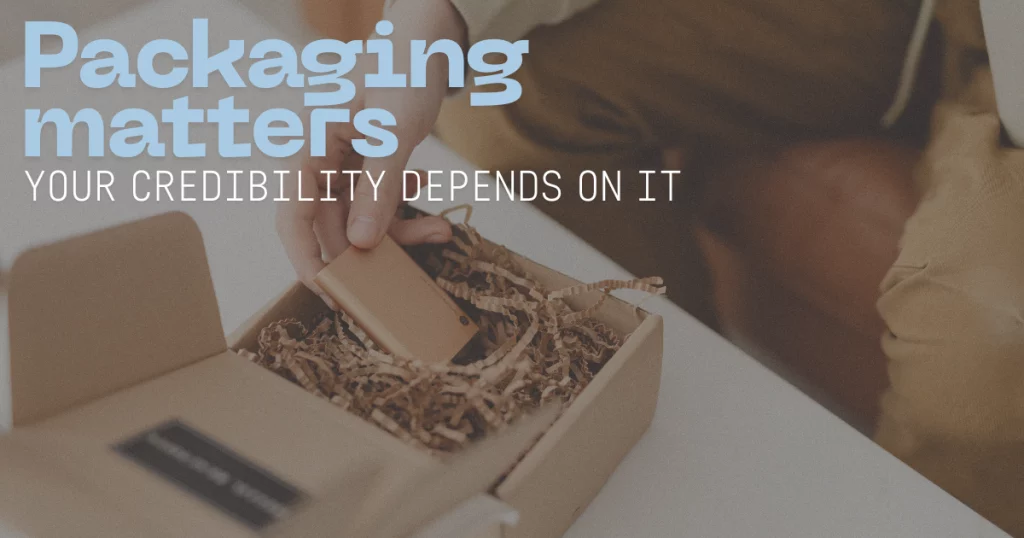Think about your favourite author or a leading journalist in your field. When you see their name on an article, you immediately know what to expect: a specific expertise, a unique voice, a trusted perspective. They have an “Author Box”, not just a byline, but a reputation that precedes them.

As a graduate, your goal isn’t just to have your name on a degree certificate; it’s to build your own professional “Author Box” so that when employers see your name, they immediately understand the value you bring.In today’s competitive market, your ability is only half the battle. The other half the half that gets you the interview, wins the client and lands the job is your presentation. It’s the “Author Box” that frames your work and tells the world you’re a professional, before you even say a word.
Table of Contents
The Unprofessional Graduate: A Silent Red Flag
This cognitive bias, identified by psychologist Edward Thorndike, means that our overall impression of a person (or brand) influences how we feel and think about their specific traits. A professional, polished “cover” (e.g., a sleek portfolio, a well-crafted LinkedIn profile) creates a positive halo, leading employers to assume the “content” (your skills and work ethic) is also high quality. Conversely, a poor presentation creates a “Horn Effect,” where one negative trait (e.g., a messy CV) clouds all other positive attributes
When a graduate’s presentation is unprofessional, it raises immediate, unspoken concerns for an employer:
- “If their personal brand is sloppy, will their work be, too?” A poorly formatted CV, a sparse or unprofessional LinkedIn profile and a disorganised portfolio suggest a lack of attention to detail.
- “Do they understand professional standards?” Inability to present ideas clearly or document work effectively hints at a difficult transition from academia to the business world.
- “Are they truly serious about their career?” A low-effort presentation can be interpreted as a lack of passion and commitment. It forces the employer to focus on the packaging instead of the product which is you.
This isn’t about being unfair; it’s about risk. An employer would rather hire the candidate who makes them feel confident from the first click.
Beyond the CV: Why Your Digital Handshake Matters More Than Ever
Princeton researchers Janine Willis and Alexander Todorov found that people make snap judgments about a person’s trustworthiness, competence, and likeability within a tenth of a second of seeing them. Your online profile or CV is subject to the same rapid, subconscious assessment. Your CV is a fact sheet. Your professional brand your “Author Box” is a handshake, a conversation and a proof of concept, all in one.
It’s the story that connects your skills to real-world impact. A strong brand does the heavy lifting for you. It answers the critical questions before they’re even asked: “Can they communicate? Can they deliver? Do they fit here?” When your branding is professional, you are no longer just a list of grades; you are a credible, compelling narrative. Good branding isn’t boasting; it’s providing evidence.
The Graduate Credibility Gap: When Skills Are Invisible
In his famous book, Barry Schwartz explains that when faced with too many options (like dozens of graduate applications), people use mental shortcuts to make decisions easier. A weak “cover” is the easiest shortcut for elimination. A strong one is a shortcut for moving to the “yes” pile. You know you’re capable. You have the skills. But if those skills are buried in academic language, hidden on a hard drive or presented without context, they are invisible.
This creates a “Credibility Gap.” The employer has to take your word for your abilities because you haven’t shown them. They are left to imagine how you would perform, which is a significant risk for them. You might be the most talented graduate, but if your presentation doesn’t bridge that gap, you will be passed over for someone whose does. Acquiring the skill is the first step; proving you can apply it professionally is what closes the deal.
Good Branding is Half the Job: The Multiplier Effect

In marketing, professional packaging signals quality and reduces the perceived risk for the buyer (in this case, the employer). A study in the Journal of Consumer Psychology confirms that attractive, professional presentation increases perceived value and trust. For a hiring manager, choosing a candidate with a flawless presentation feels like a safer bet than one with a disorganized one, even if their core skills are similar. Think of it as an equation: (Your Skills + Experience) x Your Presentation = Your Job Offer.
If your presentation is a “1”, the result is just the sum of your skills. But if your presentation is a “2”, you double the perceived value of everything you’ve done. Great branding is a multiplier. It amplifies your achievements, provides crucial context for your experience and frames you not as a student, but as a peer. It’s the work that makes all your other work shine.
Don’t Let Your Graduate Presentation Undermine Your Potential
You haven’t worked this hard for your degree only to be let down by the final, crucial step of presentation. Building a professional “Author Box” a cohesive brand and a powerful portfolio is a specialized skill that most students aren’t taught.
This is the exact problem Grad Journo exists to solve. We ensure your presentation matches your potential.
We help you:
- Build a professional brand that makes a powerful first impression.
- Create a standout portfolio with projects from real businesses, so you have the proof to back up your skills.
- Bridge the credibility gap with confidence, turning your hard-won abilities into undeniable career opportunities.
Your skills are the engine. Let us help you build the bodywork.
Stop letting your presentation hold you back. Learn how Grad Journo prepares you to be seen as the professional you are.
FAQ
1. Why does presentation matter for graduates with strong skills?
Presentation matters because it’s the lens through which employers view your skills. A poorly presented CV or portfolio can make even exceptional talent appear unprofessional, raising concerns about attention to detail and work ethic. Great presentation ensures your abilities are seen and valued correctly, which is why services like Grad Journo focus on building both your skills and your professional presentation simultaneously.
2. What concerns do employers have about an unprofessional graduate portfolio?
An unprofessional portfolio signals several red flags to employers, including poor attention to detail, an inability to meet business standards and a lack of serious commitment to their career. It forces hiring managers to question whether the graduate can transition from academic to professional work. Grad Journo helps students avoid these concerns by providing real business projects and guidance on presenting work professionally.
3. How important is personal branding compared to technical skills for graduates?
While technical skills are essential, personal branding is what makes those skills visible and credible to employers. Strong branding acts as a multiplier – it enhances the perceived value of your technical abilities and helps you stand out in a competitive job market. Grad Journo recognizes that good branding is half the job and helps students develop both aspects together.
4. What happens when a graduate’s presentation doesn’t match their capabilities?
When presentation doesn’t match capability, it creates a “credibility gap” where employers struggle to trust the graduate’s actual skills. This often results in missed opportunities, as hiring managers can’t risk bringing someone who appears unprofessional into their business. Grad Journo specifically addresses this by ensuring students learn to present their work as professionally as they execute it.
5. Why is acquiring skills not enough for today’s graduates?
Acquiring skills is only half the challenge – graduates must also demonstrate they can apply those skills professionally in real business environments. Without the ability to present their capabilities effectively through proper branding and portfolio development, even skilled graduates may be overlooked. Grad Journo bridges this gap by providing real business projects and professional presentation guidance.